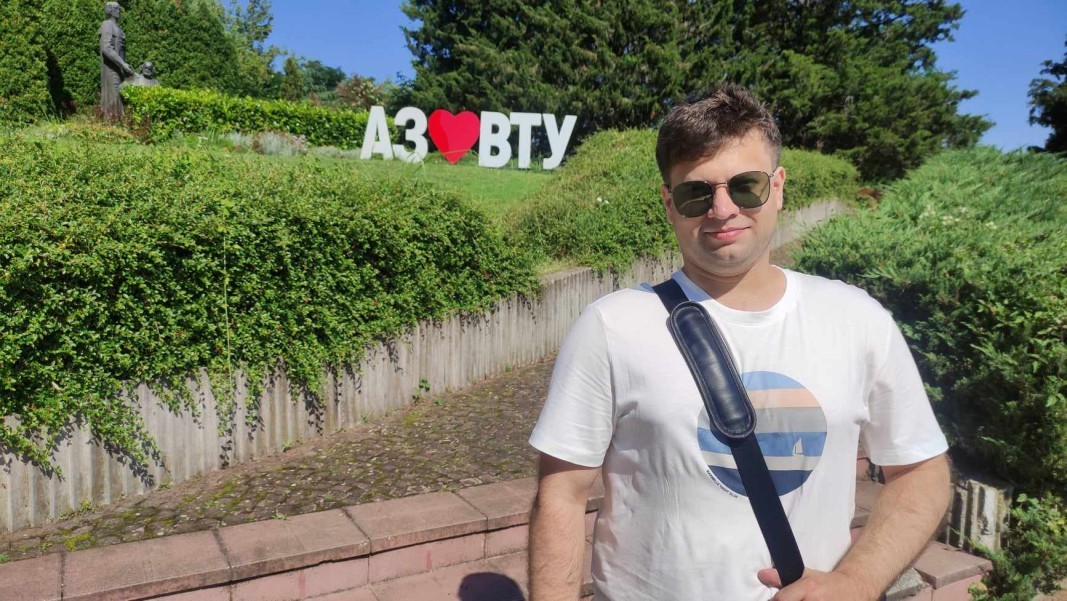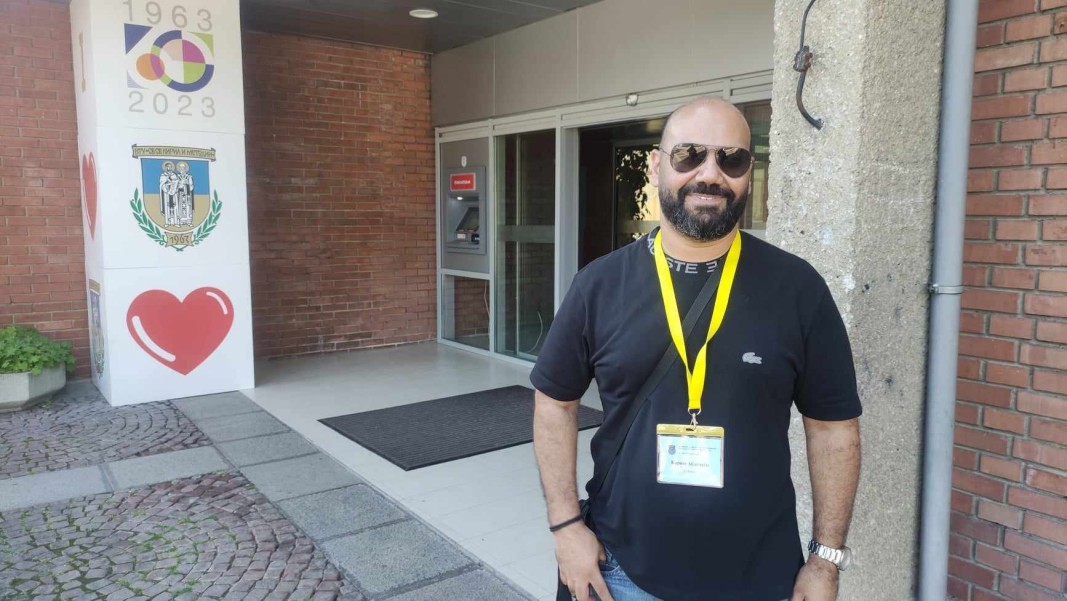More than 70 participants from 25 countries gathered this summer at the seminar on Bulgarian language and culture, organized by the University of Veliko Tarnovo "Sts. Cyril and Methodius". The 46th edition of the seminar was attended by students, teachers, university professors, translators and tour guides from three continents, provoked by their thirst for new knowledge and their interest in Bulgarian language and culture.
Rafał Murawinski from Poland is a student of Bulgarian studies and works as a secretary in an elementary school. He says that he chose Bulgarian studies as his major, inspired by a photo from Bulgaria:
"I looked at a picture of the countryside and thought why not major in Bulgarian studies, culture, language. I like the Bulgarian cuisine - the banitsa, the grilled rissoles, the Shopska salad. I know a little about Bulgarian cinema and literature, but I am more interested in sports, in Bulgarian football. I'm going to write a thesis on Hristo Stoichkov and Dimitar Berbatov, I'm interested in the "American Summer" the World Cup in 1994. I know less about the current football players."
The main goal of the seminar is to promote Bulgarian studies abroad. The schedule through the end of July includes practical training in Bulgarian language and six specialized seminars in fine arts, contemporary Bulgarian cinema, Bulgarian folklore, history and culture of Bulgaria.
Michael Hein, professor of politics and culture at the State College of Altenburg (Germany), who also teaches Bulgarian studies, has keen interest in this country: "I want my students to know that Bulgaria is a very nice country, but it has a lot of political problems, a lot of different problems linked to corruption and law, but there are a lot of interesting civil society initiatives."
For Krystian Pudolszewski from Poland, Bulgarian is his mother tongue, but he still has difficulty reading and understanding written texts - which is why he is in Veliko Tarnovo today:

"My mother is Bulgarian and it is a shame that I do not know the language as well as English and Polish. I can only use it in casual conversations, but I can't write and formulate my thoughts. I know very little about Bulgarian culture and literature. I have not read much of Bulgarian literature, I have only found a few books, not classics but new Bulgarian authors, unknown to me - unfortunately I am very slow at reading. I wish I could focus more on the content of the books instead of struggling with the language."
Eighteen of the participants had attended the Bulgarian Studies Seminar at the University of Veliko Tarnovo in previous years. Among the veterans is Egyptian Kareem Abdelati, professor of medieval history at Mansoura University, who is attending the seminar for the eighth time:
"Everything is interesting here. Your history is very old and very rich - medieval history, modern history... I know that Veliko Tarnovo was the old capital of Bulgaria. I like Tarnovo as a city, the people, the food, the weather, the university. For sure I will come back again because Tarnovo is my place."
According to the Annual Report on the Health Status of Bulgarian Citizens for 2023, t he main cause of death in Bulgaria is diseases of the cardiovascular system (61.1%), followed by oncological diseases (16.5%) and diseases of the respiratory system..
In the week of St. Andrew’s Day (also known as Bears’ Day or Mechkinden), WWF is drawing attention to six orphaned bear cubs who have been given a second chance at life. The initiative is part of the "Subscribe to Nature" campaign and..
For the 30th consecutive year, the Bulgarian Posts organize a contest for the most beautiful letter to Santa Claus. Letters must be sent by 18 December with a stamped envelope "For Santa", the sender's address indicated and postage paid. All..
According to the Annual Report on the Health Status of Bulgarian Citizens for 2023, t he main cause of death in Bulgaria is diseases of the..

+359 2 9336 661
